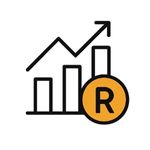
Financial literacy is a vital skill for South Africans of all income levels and backgrounds. It involves understanding how to manage money, make informed decisions, and plan for future needs. With rising debt and financial pressure, knowing how to budget, save, and use credit wisely is essential. In a country where access to financial information is often uneven, improving financial literacy can help individuals avoid debt traps, build savings, and take greater control of their financial wellbeing.
Key Takeaways
- Financial Literacy Is Crucial For Everyday Decision-Making: Understanding how to budget, save, invest, and manage debt helps individuals take control of their finances, reduce reliance on credit, and plan more effectively for the future.
- South Africa Faces Ongoing Financial Literacy Challenges: Almost half the population lacks basic financial skills, with disparities tied to education, income level, and region. Women, however, are showing increased financial involvement in managing household budgets.
- Practical Tools And Local Initiatives Are Widely Available: Resources such as Financial Sector Conduct Authority (FSCA) programmes, National Credit Regulator (NCR) campaigns, South African Savings Institute (SASI) savings drives, and banking sector efforts support public access to financial education, with growing use of mobile apps and school partnerships helping to close the knowledge gap.
About Arcadia Finance
Get your loan with ease through Arcadia Finance. There are no application fees, and you can choose from 19 reputable lenders, all approved by South Africa’s National Credit Regulator. Experience a smooth process and trusted solutions designed for your financial goals.
What Is Financial Literacy?
Financial literacy refers to having a clear understanding of how money works, alongside the practical skills needed to manage it effectively. This includes being able to budget, save, use credit responsibly, and plan for the future. It plays a vital role in helping individuals take control of their financial situation, rather than allowing financial difficulties to dictate their lives. With a sound level of financial literacy, people are more confident in handling their money, reducing reliance on debt, planning for long- and short-term goals, and preparing adequately for retirement.
The Importance Of Financial Literacy
In an environment where personal financial management is becoming increasingly complex, financial literacy is crucial. With limited government support and rising financial pressures, understanding how to manage money is now more relevant than ever. Your financial wellbeing affects nearly every aspect of your life, including stress levels, access to opportunities, and quality of life.
Without financial literacy, individuals are more likely to fall into unmanageable debt, suffer from poor credit histories, and face financial loss or fraud. These setbacks can severely affect long-term stability and restrict your ability to make independent choices about your life and future.
True financial literacy means knowing how to plan not just for emergencies but for regular costs too. A Sinking Fund equips you to meet those predictable expenses with ease.

Key Concepts in Financial Literacy
Financial literacy is built around a set of essential principles that enable people to manage money in a practical and responsible way. Rather than simply knowing the definition, it’s important to understand the concepts that form the foundation of financial literacy. These ideas help people avoid common financial errors and plan effectively for the future. Below are the main areas of financial literacy explained in detail:

Budgeting
Budgeting involves creating a plan for how to use your income each month. It includes recording your earnings and expenses, allocating funds for essential needs, and ensuring there is money left for savings. It helps prevent overspending and promotes better money habits.

Saving
Saving refers to putting money aside for future requirements or emergencies. This can include using standard savings accounts, fixed deposit accounts, or money market accounts to protect your funds while earning modest interest. Establishing an emergency fund is important for covering unexpected costs such as vehicle repairs or medical bills.

Investing
Investing is the process of using money to buy assets like shares, bonds, or unit trusts with the aim of increasing value over time. Investments benefit from compound interest, where interest is earned on both the original amount and the interest already gained. This can significantly grow your money in the long term.

Debt Management
Debt management is about handling credit and loans in a responsible way. It includes understanding different types of debt, such as personal loans, credit cards, and home loans. Effective strategies include paying off high-interest debts first and paying more than the required minimum when possible.

Financial Planning
Financial planning means setting both short-term and long-term financial targets, such as purchasing a vehicle or preparing for retirement. A sound financial plan reviews income, expenses, savings, and outstanding debt, and outlines how to achieve specific money goals through careful planning and discipline.
Life throws curveballs and your finances don’t have to take the hit. Discover the straightforward path on how to build an emergency fund, from setting achievable monthly targets to choosing the right savings account.

The State Of Financial Literacy In South Africa
Recent findings have raised concerns about the current level of financial literacy among South Africans.
As many as 49% of South Africans are considered financially illiterate, with the issue particularly affecting women, individuals with lower levels of education, and Black African communities. Research assessing financial literacy across the country shows that variations in financial understanding are closely tied to both demographic factors and economic conditions, which vary by province. These differences highlight the need for tailored interventions that address specific regional challenges.
Encouragingly, a 2022 study by the Financial Sector Conduct Authority (FSCA) revealed that more women (37%) than men (34%) are taking full responsibility for managing daily household finances. This indicates a positive shift towards greater financial involvement and empowerment among South African women.
However, a 2023 study focusing on retirement planning has revealed a more troubling trend. It found that financial literacy plays a significant role in how people prepare for retirement. Currently, only 24% of South Africans actively make retirement plans, which suggests a looming crisis and a worrying dependence on state-funded social assistance.
Main Causes Behind Low Financial Literacy
A number of contributing factors continue to undermine the level of financial literacy in the country:
- Inadequate financial education: Many schools and communities do not provide consistent or current financial education, which leaves people without the basic knowledge required to manage their money confidently.
- Limited access to financial tools and support: A lack of exposure to financial advisors, accessible guidance, or educational resources makes it difficult for individuals to improve their financial understanding.
- Economic inequality: People from disadvantaged backgrounds often lack exposure to structured financial services and planning, reducing opportunities to build financial skills.
- Cultural and societal influences: Local beliefs and social attitudes about money, spending, and debt can shape financial habits and often discourage long-term planning or saving.
How Financial Literacy Impacts The Broader Economy
The effects of financial literacy extend far beyond individual households. When people are financially literate, they tend to budget more effectively, avoid unnecessary debt, and make informed decisions about saving and investment. This responsible behaviour supports economic stability by encouraging smarter spending and long-term planning.
In a country like South Africa, where poverty, unemployment, and inequality remain persistent, the value of financial knowledge becomes even more evident. Financially literate individuals are better equipped to avoid common debt pitfalls, invest in their futures, and potentially launch small businesses, which in turn may help reduce unemployment. It is for this reason that financial education is increasingly recognised as an important driver of national economic resilience.

How To Improve Your Financial Literacy Skills
There are several key competencies that make up financial literacy, and your ability to strengthen each one directly affects how well you manage your finances and make sound money decisions.
Draw Up A Monthly Budget
Work out your take-home income after tax, then list all your essential monthly costs. Keep track of your spending on extras such as entertainment, takeaways, or unnecessary subscriptions. This will give you a clearer view of how your money is used, where you may be overspending, and how you can redirect funds toward savings, an emergency fund, or retirement contributions.
Get Proper Financial Guidance
A qualified financial advisor can help you get your finances in order by explaining different financial products, clarifying terms, and recommending a realistic financial plan based on your goals. This support is useful when working out how to reduce debt, grow savings, or prepare for long-term investments.
Monitor Your Credit Score Regularly
Your credit score plays a central role when applying for credit, affecting both your approval chances and the interest rate offered. By checking your credit report, you’ll have a better idea of where you stand and what steps you can take to improve your score, which could lead to access to more affordable borrowing in future.
Use Practical Financial Tools
Instead of relying only on your monthly bank statement, use daily financial tools to stay in control of your finances. Budgeting and finance apps are available to help you view all your income and spending in one place, stay within your set limits, and make room for saving or investing goals.

Resources To Improve Financial Literacy In South Africa
The most widely used consumer financial education methods in South Africa are generally those that can reach a broad audience and generate strong participation. Based on available information, the following resources are among the most actively applied across the country:
| Initiative/Organisation | Description |
|---|---|
| National Credit Regulator (NCR) Initiatives | The National Credit Regulator, as a principal authority overseeing credit activity, runs various initiatives that are commonly acknowledged and implemented. These programmes focus primarily on enhancing public understanding of credit, debt obligations, and borrowing behaviour. |
| Financial Sector Conduct Authority (FSCA) | The FSCA uses its regulatory influence and established outreach networks to provide educational tools and campaigns aimed at increasing public knowledge of financial products and consumer rights. Its resources are frequently accessed by individuals seeking clarity on financial services and regulatory protections. |
| South African Savings Institute (SASI) | SASI prioritises building a savings culture through national campaigns, workshops, and community-focused engagements. This organisation plays a significant role in promoting financial discipline and encouraging long-term savings habits among South Africans. |
| Banking Association South Africa (BASA) | The Banking Association of South Africa, in partnership with its member banks, supports a variety of programmes that promote responsible financial practices. These educational efforts are well-integrated into banking environments and are routinely presented to consumers through multiple touchpoints. |
| Educational Partnerships | There has been an increasing trend in collaboration between schools, universities, and financial organisations. These partnerships aim to introduce financial education within the formal curriculum, while also offering tailored courses and training sessions designed to build practical financial skills from a young age. |
| Digital Platforms and Mobile Applications | There has been a notable rise in the use of mobile apps and web-based tools to provide accessible and interactive financial education. These digital solutions are especially popular due to their ease of access and user-friendly features, making financial literacy more reachable to individuals across various demographics. |
These resources continue to be widely adopted due to their ability to reach many people, their integration into formal institutions and regulatory systems, and their capacity to adjust to modern, technology-driven learning environments.
Conclusion
Financial literacy is more than a concept – it is a practical skill set that directly influences the financial wellbeing of individuals and households across South Africa. With many people facing economic pressure and limited access to formal education, the ability to manage money, avoid debt, and plan for future goals is increasingly important. Encouragingly, various local initiatives, public campaigns, and digital tools are making financial education more accessible. By improving financial knowledge and applying it in daily life, South Africans can build stronger financial habits, reduce vulnerability to debt, and contribute to a more stable economy overall.
Frequently Asked Questions
Financial literacy includes budgeting, saving, debt management, investing, and financial planning. It also involves understanding credit, financial products, and making informed money decisions.
South Africans face rising living costs, high debt levels, and limited access to support. Financial literacy helps individuals make better choices, avoid scams, and reduce reliance on credit.
Free resources are available through the FSCA, the National Credit Regulator, and initiatives by the Banking Association South Africa. Some banks also offer online courses and workshops.
Without basic money management skills, individuals may overspend, fall into debt, miss saving goals, and struggle to plan for emergencies or retirement, leading to long-term financial hardship.
Yes, mobile apps offer tools for budgeting, saving, and tracking expenses. They provide real-time insights into your spending and are especially useful for managing finances on the go.
Fast, uncomplicated, and trustworthy loan comparisons
At Arcadia Finance, you can compare loan offers from multiple lenders with no obligation and free of charge. Get a clear overview of your options and choose the best deal for you.
Fill out our form today to easily compare interest rates from 19 banks and find the right loan for you.

